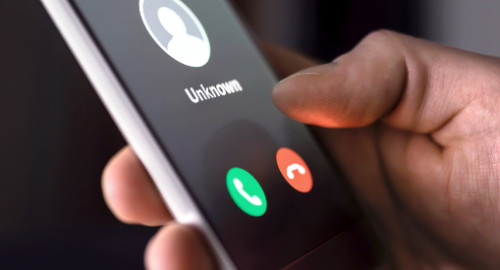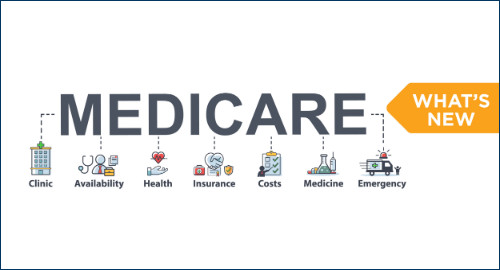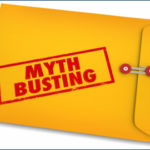Medicare fraud prevention tips
It’s a normal Tuesday afternoon and you are sitting at home. Maybe you are doing household chores. Maybe you are reading a book. Then, the phone rings, and the caller says they are an employee of the Centers for Medicare and Medicaid Services (CMS). The caller lets you know that there are new updates to Medicare, and they are issuing new cards. They ask for your Medicare number so you can receive your new card.
If this happens to you, it should definitely raise a red flag. Why? This person is definitely not an employee of CMS, and they are likely trying to steal your identity. With open enrollment on the horizon, it’s important to be aware of Medicare fraud. With the help of CMS, we’d like to share some tips for avoiding Medicare fraud and abuse.
1. Guard your Medicare number and medical information
This is something that CMS stresses, and we’d like to reinforce. CMS says to treat this number the same way that you would treat a credit card number. Only give it to your doctor or provider. The same goes for your medical records. Medicare will never contact you for your Medicare number or other personal information unless you’ve given them permission in advance. If someone calls asking for your Medicare number in return for free items, gifts or services, don’t do it.
2. Identify when someone could be a scammer
Remember that Medicare will never contact you without permission, and Medicare cannot enroll you over the phone unless you call first, nor will someone call you to sell you anything. Medicare will also never visit you at home. Common signs that someone could be a scammer include:
- A caller claiming to represent Medicare asks for your Social Security number to activate your new Medicare card or your bank information to sync your card with your bank.
- Someone reaches out and attempts to help you sign up for Medicare Part B through any other entity than the Social Security Administration.
- A door-to-door sales representative claiming to be from Medicare arrives at your home to sell you medical supplies.
- Someone offers free screenings or medical tests if you show them your Medicare card.
- A healthcare provider pushes a product or service you feel that you don’t need.
3. Don’t get distracted and keep your guard up
Right now, it’s easy to be distracted by what is happening in the world, especially the COVID-19 public health crisis. There have been reports of scammers who are attempting to trick people into revealing sensitive information or donating to fake charities or causes. Don’t be fooled! If something sounds suspicious, be wary and remember to not give away personal information.
What are examples of Medicare fraud?
Learning some examples of Medicare fraud helps protect you and your loved ones from becoming a victim. Here are a few hypothetical examples:
- You receive a call from a “Medicare representative” to confirm your billing information before receiving your new card to keep your coverage active. They ask for the last four digits of your Social Security Number, Medicare number and/or bank details. Do not give any person information over the phone.
- A salesperson calls you or arrives at your home offering free medical equipment or services in exchange for your Medicare information. Hang up the phone, as they just want your information for identity theft.
- A representative claiming to be from Medicare calls you with new updates and changes to Medicare’s policy. Official communication from Medicare is by mail only. If you have any questions about updates or policy changes, contact Medicare directly by calling CMS at 1-800-MEDICARE (1-800-633-4227). TTY users can call 1-877-486-2048.
- After receiving your new Medicare card, you receive a phone call asking you to mail in your old card. You don’t need to activate your new card, nor do you need to return the old one. Shred your old card once you receive your new card in the mail.
Is Medicare fraud a crime?
Medicare fraud is a crime. According to CMS, there are several federal laws governing Medicare fraud and abuse and they “specify the criminal, civil, and administrative penalties and remedies the government may impose on individuals or entities that commit fraud and abuse in the Medicare and Medicaid Programs.” These are:
- The False Claims Act (FCA)
- Anti-Kickback Statute (AKS)
- Physician Self-Referral Law (Stark Law)
- Social Security Act (which includes the Exclusion Statute and the Civil Monetary Penalties Law (CMPL)
- United States Criminal Code
What should you do if you suspect Medicare fraud?
What do you do if you are suspicious of Medicare fraud? It’s simple. If you suspect fraud, call CMS at 1-800-MEDICARE (1-800-633-4227). TTY users can call 1-877-486-2048.
Our intent in sharing these tips is not to frighten you, but to protect you. We would like to remind our members to remain vigilant and that we’re always here to help. Please contact Member Services at (831) 574-4938, or toll free (855) 570-1600 (TTY: 711).
H8764_MKT_FraudReminder _Blog_0921_C










